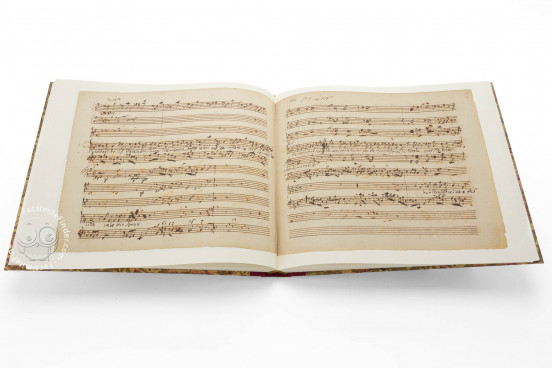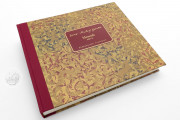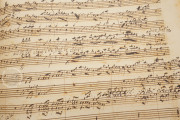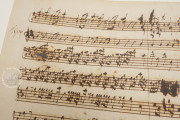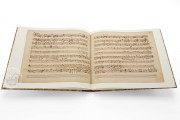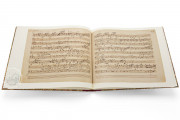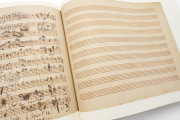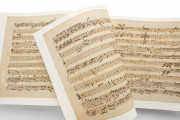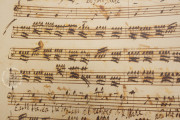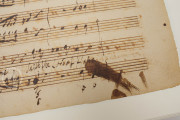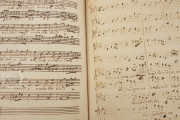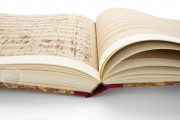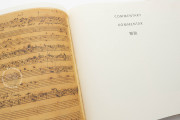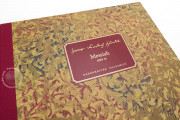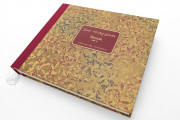This manuscript is the autograph of Messiah, the famous oratorio composed by George Frideric Handel mostly—according to the composer's testimony—between August 22 and September 14, 1741. Emendations were made both during composition and after performances in 1742. The 140 paper sheets in landscape format are bound at the left edge. Each page has ten five-line musical staves, many of which were extended by Handel as he squeezed notes into the margins. Musical directions are generally in Italian with lyrics and titles in English in the composer's hand.
The musical notation with its tactile pearls of black ink and hurried lyrical additions demonstrates the passion and expression with which the music was composed. The manuscript preserves the act of creation of one of the most recognizable and enduring pieces of eighteenth-century music.
Handel's Handwritten Masterpiece
Handel's Messiah is an example of an oratorio, a musical piece for orchestra, vocal soloists, and choir on a sacred subject that is unstaged. Messiah is the fifth oratorio Handel composed after he stopped composing Italian operas for the nobility, a decision that broadened his appeal among the middle classes. It was first performed in Dublin in 1742.
Composed over Three Weeks
Working in collaboration with his friend, Charles Jennens, Handel wrote the music for the oratorio in his London home in the summer of 1741. The haste with which he wrote caused some strife with Jennens, who supplied the lyrics derived from the King James Bible and the Coverdale Psalter to tell the story of the birth, life, death, and resurrection of Jesus Christ with extensive text drawn from Old Testament prophecy. This haste is evident on fol. 22r, where a large amount of ink was spilled across the page. The damaged page was later copied by another scribe and tipped in on top of it.
From the British Royal Music Library
The Messiah autograph manuscript, along with ninety-six of Handel's other handwritten works, was part of the Royal Music Library of the British crown, formed by Queen Caroline in 1737. Handel remained unmarried, and much of his estate was bequeathed to a niece. Nevertheless, his manuscripts came to be owned by the crown. In 1957, Queen Elizabeth II presented the entire collection to the British Museum. The manuscript collections of the British Museum library were transferred to the British Library upon its establishment in 1973.
We have 1 facsimile edition of the manuscript "Messiah HWV 56 Autograph": Messiah (Messias) HWV 56 facsimile edition, published by Bärenreiter-Verlag, 2009
Request Info / Price
